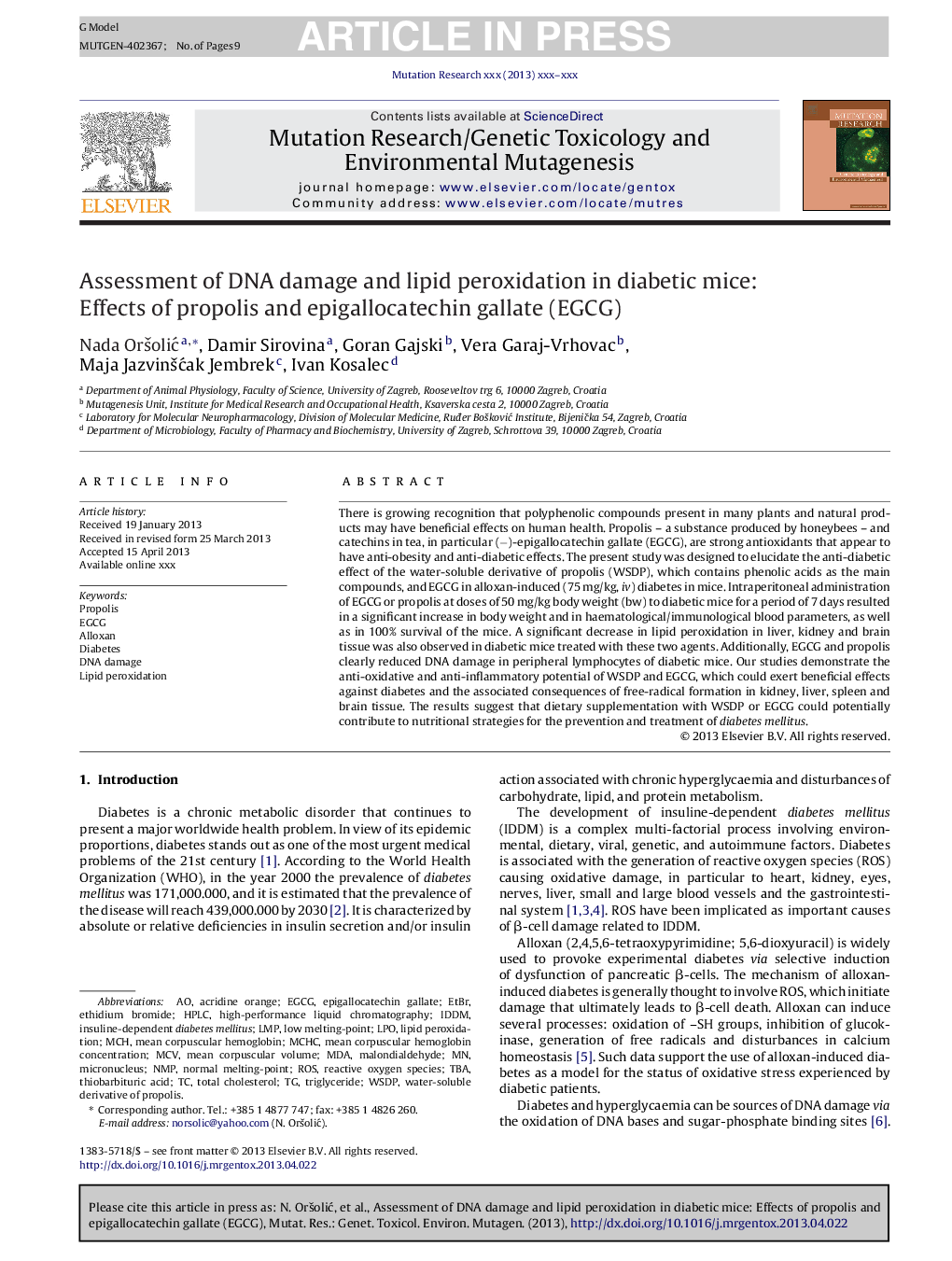| Article ID | Journal | Published Year | Pages | File Type |
|---|---|---|---|---|
| 10914963 | Mutation Research/Genetic Toxicology and Environmental Mutagenesis | 2013 | 9 Pages |
Abstract
There is growing recognition that polyphenolic compounds present in many plants and natural products may have beneficial effects on human health. Propolis - a substance produced by honeybees - and catechins in tea, in particular (â)-epigallocatechin gallate (EGCG), are strong antioxidants that appear to have anti-obesity and anti-diabetic effects. The present study was designed to elucidate the anti-diabetic effect of the water-soluble derivative of propolis (WSDP), which contains phenolic acids as the main compounds, and EGCG in alloxan-induced (75Â mg/kg, iv) diabetes in mice. Intraperitoneal administration of EGCG or propolis at doses of 50Â mg/kg body weight (bw) to diabetic mice for a period of 7 days resulted in a significant increase in body weight and in haematological/immunological blood parameters, as well as in 100% survival of the mice. A significant decrease in lipid peroxidation in liver, kidney and brain tissue was also observed in diabetic mice treated with these two agents. Additionally, EGCG and propolis clearly reduced DNA damage in peripheral lymphocytes of diabetic mice. Our studies demonstrate the anti-oxidative and anti-inflammatory potential of WSDP and EGCG, which could exert beneficial effects against diabetes and the associated consequences of free-radical formation in kidney, liver, spleen and brain tissue. The results suggest that dietary supplementation with WSDP or EGCG could potentially contribute to nutritional strategies for the prevention and treatment of diabetes mellitus.
Keywords
MDANMPMCVIDDMMCHCTBAEGCGMCHLPOEtBrLMPROSDNA damageAlloxanAcridine orangeethidium bromideThiobarbituric acidepigallocatechin gallateDiabetestriglycerideMean corpuscular volumemalondialdehydemean corpuscular hemoglobinMean corpuscular hemoglobin concentrationMicronucleusLipid peroxidationpropolisHPLChigh-performance liquid chromatographytotal cholesterolReactive oxygen species
Related Topics
Life Sciences
Biochemistry, Genetics and Molecular Biology
Cancer Research
Authors
Nada OrÅ¡oliÄ, Damir Sirovina, Goran Gajski, Vera Garaj-Vrhovac, Maja JazvinÅ¡Äak Jembrek, Ivan Kosalec,
